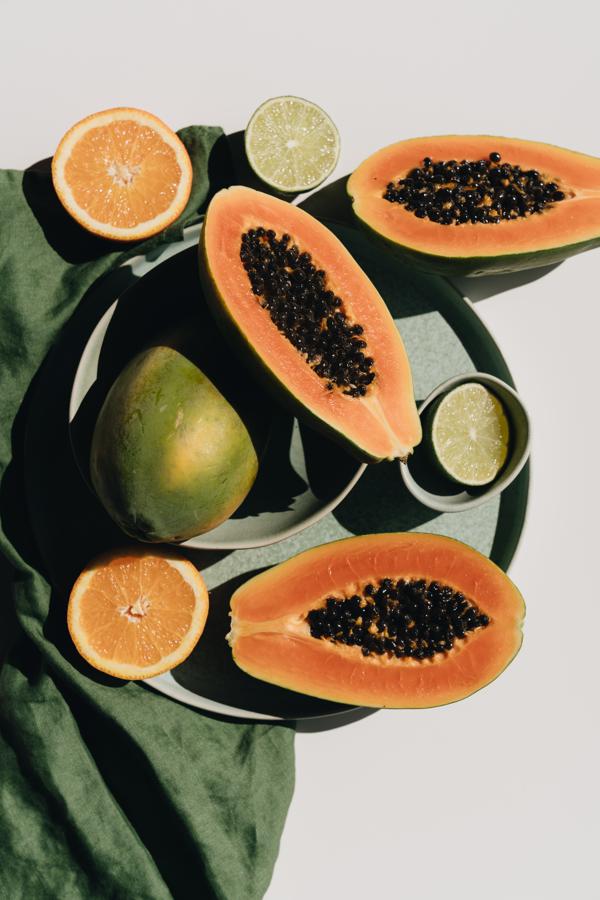Health Benefits Of Corn And Its Side Effects
Health Benefits of Corn and Its Side Effects
Corn is a versatile and nutrient-rich grain that has been a staple food in many cultures for thousands of years. Not only is it delicious, but it also offers a wide range of health benefits. From providing essential nutrients to promoting digestive health, corn can be a valuable addition to a balanced diet. However, like any other food, it is important to consume corn in moderation and be aware of any potential side effects. In this article, we will explore the health benefits of corn and discuss its potential side effects.
Nutritional Value of Corn
Corn is packed with essential nutrients that are beneficial for overall health. Here is an overview of the nutritional value of corn:
– Carbohydrates: Corn is primarily composed of carbohydrates, which provide energy and fuel for the body.
– Fiber: It is an excellent source of dietary fiber, which aids in digestion and helps prevent constipation.
– Vitamins: Corn is rich in various vitamins, including vitamin C, thiamine (B1), niacin (B3), and folate (B9).
– Minerals: It contains essential minerals such as magnesium, phosphorus, and potassium.
– Antioxidants: Corn contains several antioxidants, including lutein and zeaxanthin, which are beneficial for eye health.


Health Benefits of Corn
1. Promotes Digestive Health: The high fiber content in corn helps promote healthy digestion by adding bulk to the stool and preventing constipation. It also supports the growth of beneficial gut bacteria, which aids in nutrient absorption and strengthens the immune system.
2. Boosts Eye Health: Corn is rich in antioxidants like lutein and zeaxanthin, which are known to support eye health. These antioxidants help protect the eyes from harmful free radicals and reduce the risk of age-related macular degeneration and cataracts.
3. Provides Energy: Being a carbohydrate-rich food, corn provides a steady source of energy. It is an excellent choice for athletes or individuals who engage in regular physical activities.
4. Supports Heart Health: The high fiber content in corn can help lower cholesterol levels and reduce the risk of heart disease. Additionally, the antioxidants present in corn help prevent the oxidation of LDL cholesterol, reducing the risk of plaque formation in the arteries.
5. Aids in Weight Management: Corn is relatively low in calories and can be included in a balanced diet for weight management. The fiber content keeps you feeling full for longer, reducing the likelihood of overeating.
6. Supports Bone Health: Corn contains essential minerals like magnesium and phosphorus, which are crucial for maintaining healthy bones. These minerals contribute to bone density and help prevent conditions like osteoporosis.
7. Promotes Skin Health: The antioxidants found in corn play a vital role in maintaining healthy skin. They help protect against damage caused by environmental factors, such as pollution and UV radiation, thus preventing premature aging and maintaining a youthful appearance.
Side Effects of Corn
While corn is generally safe for consumption, some individuals may experience side effects. It is important to be aware of the following:
1. Allergic Reactions: Corn allergies are uncommon but can cause symptoms such as hives, swelling, itching, and difficulty breathing in susceptible individuals. If you experience any of these symptoms after consuming corn, it is advisable to seek medical attention.
2. Digestive Issues: Some individuals may have difficulty digesting corn due to its high fiber content. This can lead to symptoms such as bloating, gas, and abdominal discomfort. Gradually increasing fiber intake and drinking plenty of water can help alleviate these issues.
3. Pesticide Exposure: Corn is one of the most commonly genetically modified crops, and conventional corn may be sprayed with pesticides. It is advisable to opt for organic or locally sourced corn to reduce pesticide exposure.
4. High Glycemic Index: Corn has a relatively high glycemic index, which means it can cause a rapid increase in blood sugar levels. Individuals with diabetes or those watching their blood sugar levels should consume corn in moderation and pair it with protein or healthy fats to slow down the absorption of glucose.
Frequently Asked Questions
1. Is corn a healthy food?
Yes, corn is a healthy food packed with essential nutrients, including fiber, vitamins, and antioxidants. It offers numerous health benefits such as promoting digestive health, boosting eye health, and supporting heart health.
2. Can corn cause weight gain?
Corn itself is not likely to cause weight gain when consumed in moderation. However, the preparation and added ingredients, such as butter or oil, can contribute to weight gain. It is important to be mindful of portion sizes and choose healthier cooking methods.
3. Can corn be included in a gluten-free diet?
Yes, corn is naturally gluten-free and can be safely consumed by individuals with gluten intolerance or celiac disease. However, cross-contamination can occur during processing, so it is advisable to choose certified gluten-free products.
4. Can corn be eaten raw?
While it is possible to eat corn raw, it is more commonly consumed cooked. Cooking corn helps break down tough fibers and makes it easier to digest. However, fresh sweet corn can be enjoyed raw, as it is naturally sweet and tender.
Final Thoughts
Corn is a versatile and nutritious grain that offers an array of health benefits. From promoting digestive health to supporting heart health and aiding in weight management, corn can be a valuable addition to a balanced diet. However, it is important to consume corn in moderation and be aware of any potential side effects. If you have any specific health concerns or allergies, it is advisable to consult with a healthcare professional before including corn in your diet. Enjoy corn as part of a diverse and well-rounded diet, and reap its many nutritional benefits.







